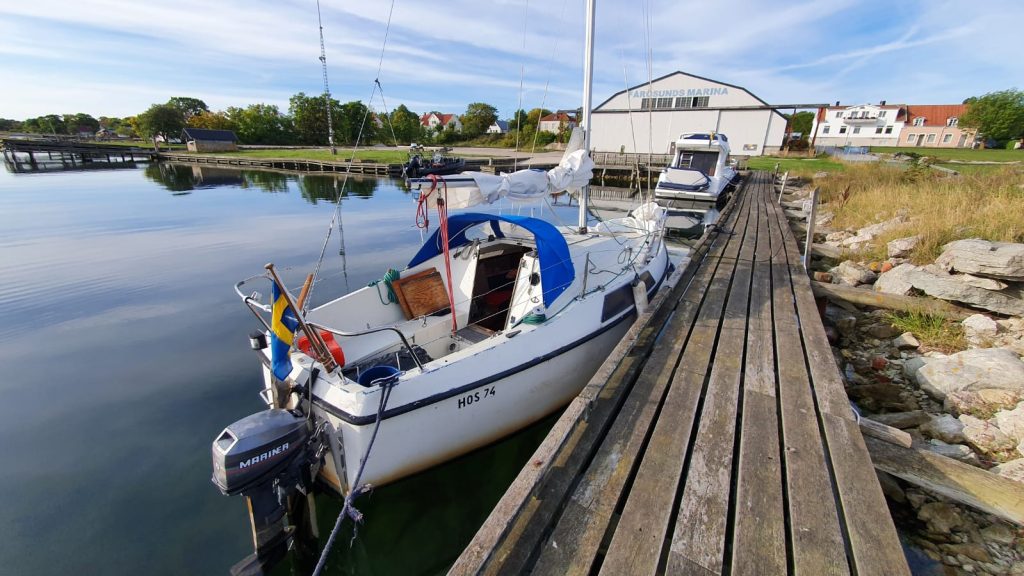Seasickness is a condition that causes nausea, vomiting and dizziness while on a ship or other moving platform. This is caused by discomfort in the inner ear, which receives conflicting signals about body movement from vision and muscle sensations.

The most effective remedies against seasickness
There is no clear evidence that not drinking coffee will help with seasickness. Some people believe that caffeine can make symptoms worse, but there isn't enough research to support this.
The most effective remedies for seasickness may vary from individual to individual. Some people find ginger products, such as ginger tablets, capsules, or teas, helpful. For others, seasickness bracelets or medications such as diphenhydramine or dimenhydrinate may be more effective.
It's important to try different remedies to find what works best for you. You can also consult your doctor about what medications or treatments might be best for your particular situation.

Tips that can help prevent seasickness
- Eat light meals and drink plenty of fluids before going to sea.
- Avoid alcohol and caffeine.
- Sit in a quiet place on board where there is little movement.
- Look at the horizon or a distant object.
- Take a deep breath and try to relax.
If you feel seasick, it's important to stay hydrated and rest. If symptoms are severe, you can use over-the-counter medications. If seasickness is interfering with your daily life, talk to your doctor.

Ginger products:
Ginger has been used for centuries to relieve indigestion, including seasickness. Some research suggests that ginger may have antiemetic properties. However, the evidence is inconclusive and more research is needed.
If you want to try ginger for seasickness, you can take ginger capsules, tablets or tea. You can also add ginger to food or drinks.
Seasickness Bracelets:
Seasickness wristbands work by pressing an acupressure point on the wrist. This pressure is said to help reduce nausea and vomiting.
Seasickness bracelets are widely available and relatively inexpensive. It is also an over-the-counter medicine. However, the evidence for the effectiveness of seasickness bracelets is mixed. Some studies have shown them to be effective, while others have not.
If you want to try seasickness bracelets, it's important to get the right size and wear them correctly. You should wear the cuffs on both wrists and they should be tight enough to feel the pressure, but not so tight that they are uncomfortable.

Drugs:
There are several medications available that can help treat seasickness. These medications work by blocking signals in the brain that cause nausea and vomiting.
The most common medications for seasickness are antihistamines, such as diphenhydramine (Benadryl) and dimenhydrinate (Dramamine). These medications are effective for many people, but they can cause drowsiness and dry mouth.
So, you can choose between ginger products, seasickness packs and medications to prevent seasickness.
Ginger products are a natural remedy with some scientific support, but the evidence is inconclusive. Seasickness bracelets are relatively inexpensive and easy to use, but research on their effectiveness is mixed. Medications such as diphenhydramine and dimenhydrinate are the most common and effective, but they can cause side effects.
The best way to find out what will work best for you is to try different remedies and see what works for you. You can also consult your doctor for recommendations on the best type of treatment for your particular case.
Frequently asked questions and answers about seasickness:
1. What are the symptoms of seasickness?
Symptoms of seasickness usually begin within 30 minutes to 2 hours of being on a ship or other moving platform. These may include:
- Nausea
- Vomiting
- Dizziness
- Light head
- Stomach ache
- Loss of appetite
- Increased salivation
- Pallor
- Cold sweat
2. What causes seasickness?
Seasickness is caused by inner ear discomfort. The inner ear contains the vestibular apparatus, which is responsible for the sense of balance. When we are on a ship or other moving platform, the inner ear receives conflicting signals about body movement from vision and muscle sensations. This can cause discomfort and symptoms of seasickness.
3. How to prevent seasickness?
There are several ways to prevent seasickness, including:
- Avoid alcohol and caffeine: These substances can worsen the symptoms of seasickness.
- Eat light meals: Eat light meals and drink plenty of fluids before and during your trip to the sea.
- Sit in a quiet place: Find a quiet spot on the ship where there is little movement.
- Look at the horizon: Look at the horizon or a distant object to help stabilize your vision.
- Use ginger products: Some people find that ginger products, such as ginger tablets, capsules, or tea, can help relieve the symptoms of seasickness.
- Use seasickness wristbands: Seasickness wristbands apply pressure to an acupressure point on the wrist, which can help reduce nausea and vomiting.
- Take medication: If other remedies don't help, you can take medications for seasickness, such as diphenhydramine (Benadryl) or dimenhydrinate (Dramamine).
4. How to treat seasickness?
If you are seasick, it is important to stay hydrated and rest. If the symptoms are severe, you can take medication for seasickness. If seasickness is interfering with your daily life, talk to your doctor.
Additional tips:
- If you know you are susceptible to seasickness, you can start taking your seasickness medication one day before going to sea.
- If you feel bad, try to breathe deeply and focus on something calm.
- Avoid reading or looking at a screen, as this can make symptoms worse.
- If you need to go to the bathroom, go slowly and carefully.
Seasickness can be unpleasant, but there are several ways to prevent and treat it. If you follow these tips, you can enjoy your time on board symptom-free.

Sources:
- Seasickness management and medicine: Daivings
- https://www.webmd.com/: Sea sickness
- https://www.nlm.nih.gov/: Sea sickness

